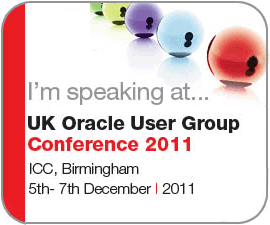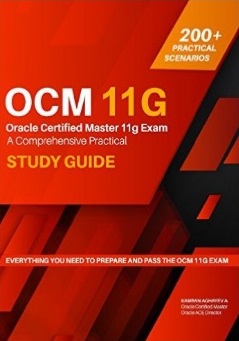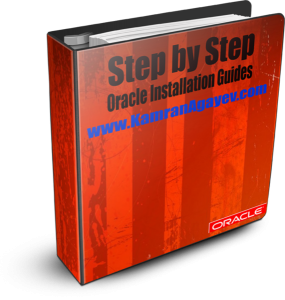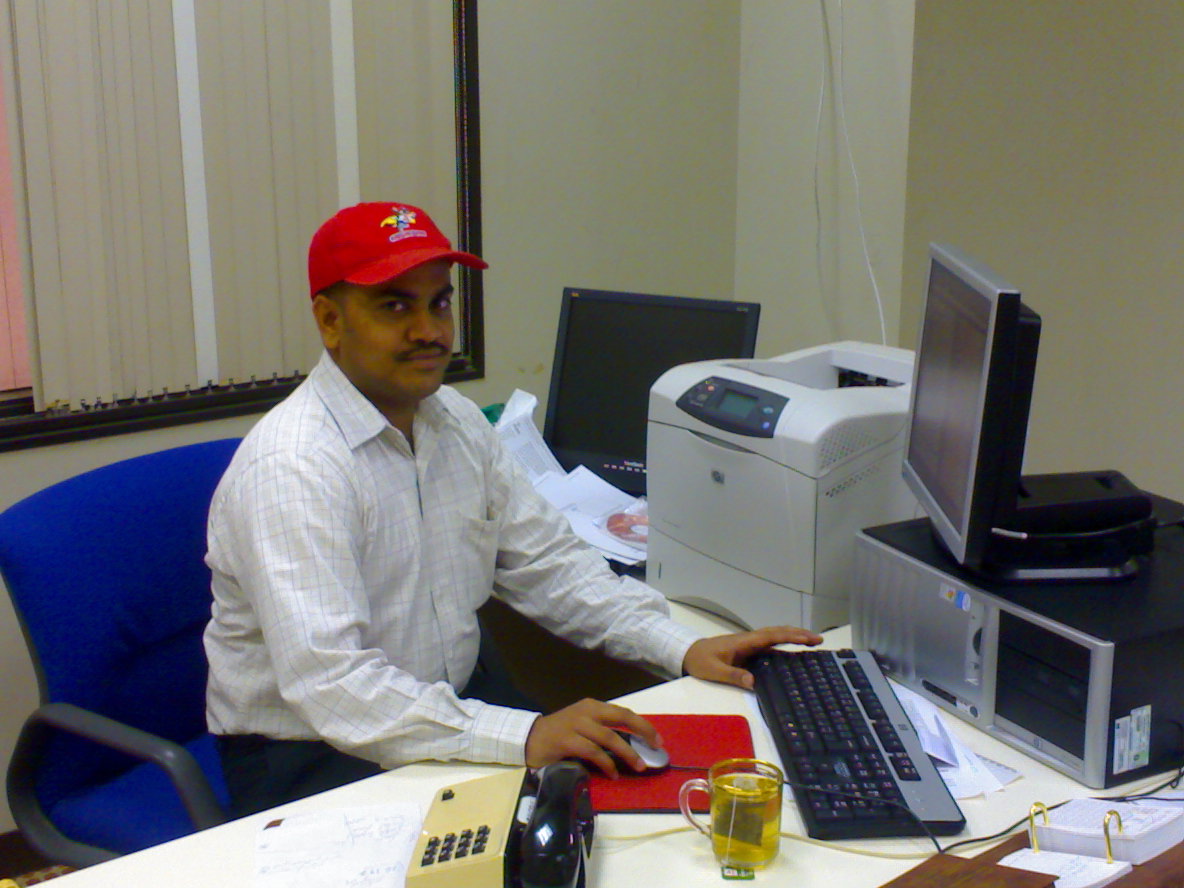Exclusive Interview with Syed Sabdar Hussain
Posted by Kamran Agayev A. on 31st May 2010
 Sabdar Syed is an Oracle ACE, Oracle Certified Professional (8i, 9i & 10g), Oracle Certified Expert (10g RAC), and Oracle 11i E-Business Certified Professional with over 8 years of experience in Oracle Database and Oracle Applications Administration with strong Unix/Linux administration skills. He’s currently working as an Oracle Database Administrator for a first bank, Saudi Hollandi Bank, in Kingdom of Saudi Arabia, (Riyadh). He has extensive experience with Oracle Database 11g, 10g, 9i, & 8i , Oracle 10g RAC, and Oracle E-Business Suite 11i, Specializing in Installing, Configuring, Administering, Cloning, Patching, Upgrading and Migrating, and troubleshooting of Oracle Database 11g, 10g, 9i, & 8i , Oracle 10g RAC, and Oracle E-Business Suite 11i on different UNIX and Linux OS including Solaris, HP-Unix, IBM AIX and Red Hat. Good exposure in implementing backup & recovery strategies and implementing high-availability solutions (Real Application Clusters (RAC), Data Guard (Standby)).He has written and published a couple of articles on Oracle Metalink Customer Knowledge Exchange.
Sabdar Syed is an Oracle ACE, Oracle Certified Professional (8i, 9i & 10g), Oracle Certified Expert (10g RAC), and Oracle 11i E-Business Certified Professional with over 8 years of experience in Oracle Database and Oracle Applications Administration with strong Unix/Linux administration skills. He’s currently working as an Oracle Database Administrator for a first bank, Saudi Hollandi Bank, in Kingdom of Saudi Arabia, (Riyadh). He has extensive experience with Oracle Database 11g, 10g, 9i, & 8i , Oracle 10g RAC, and Oracle E-Business Suite 11i, Specializing in Installing, Configuring, Administering, Cloning, Patching, Upgrading and Migrating, and troubleshooting of Oracle Database 11g, 10g, 9i, & 8i , Oracle 10g RAC, and Oracle E-Business Suite 11i on different UNIX and Linux OS including Solaris, HP-Unix, IBM AIX and Red Hat. Good exposure in implementing backup & recovery strategies and implementing high-availability solutions (Real Application Clusters (RAC), Data Guard (Standby)).He has written and published a couple of articles on Oracle Metalink Customer Knowledge Exchange.
He owns his blog ( http://sabdarsyed.blogspot.com ) where he discusses the issues that he faced and resolved, and also the topics he tested or implemented.
Could u please provide answer to the following questions as follows:
- Brief information about yourself and your family
I am Syed Sabdar Hussain, an Indian national currently working for Saudi Hollandi Bank, K.S.A. I have 3 brothers and a sister and I am married person and have one son. My wife is Rozina and my son is Rayyan (2 years old).
- Your education
I have done my graduation in Bachelor of Computer Sciences i.e B.Sc (Computers)
- Your experience with Oracle. When you started first? Has it been interest of your side or just a coincidence?
I started using and practicing Oracle SQL & PL/SQL from my graduation in the year 1999-2000. When I completed my graduation, I got trained in Oracle 8i DBA Administration in the year 2001. Then, I started working as Oracle DBA since 2002.
- What was the motive behind to prefer Oracle? Who you have been influenced by?
My elder brother, Mr. Syed Jaffar Hussain, who was already interviewed in your blog, is my motivator and mentor. He preferred me to choose my career in Oracle Technologies, and also he taught me many core techniques in Oracle DBA. I always follow his footsteps. He is not only a motivator to me but also he is a motivator for many other DBAs too.
- What would your preference of profession if not Oracle?
If not an Oracle DBA, then I would have been a programmer or developer
- What motivates you in your job?
My ability to work hard and deliver results, and reorganization and appreciation at the work motivates me. My past experience motivates me to become DBA from Junior to Senior Level.
- Do you give lectures on Oracle?
No, but I do give internal technical presentations in the company and do train Junior DBAs. I’m sure that I will be prepared for open lectures on Oracle in near future when the opportunity comes.
- Have you authored any book in Oracle?
I’m currently reviewing the book “Oracle Backup & Recovery: Expert secrets for using RMAN and Data Pump” for Rampant Techpress. And, I helped my elder brother by reviewing the chapters and testing the scenarios he prepared for his upcoming book “Oracle 11g R1 / R2 Real Application Clusters Handbook”. And looking forward to review other Oracle books and write a book on my own in Oracle Technologies in near future.
- Do you manage with your time as to read books on Oracle? What is the name of the book that you read recently?
Whenever possible I do read Online Oracle Documentations, Oracle ILT (Instructor Led Training) materials, and Oracle Books. Following are the few books which I’m currently referring:
“Oracle Database 10g Performance Tuning Tips & Techniques”
“Oracle Automatic Storage Management: Under-the-Hood & Practical Deployment Guide”
“Pro Oracle Database 10g RAC on Linux: Installation, Administration, and Performance”
“Oracle Data Guard 11g Handbook”
- What do you think on OTN forums?
OTN Forum is a great and wonderful technical forum and one and only place for every DBA to join and get the answers for their questions and clear their doubts from the top experts in Oracle. I’m also a member of OTN and myself asked many questions and answered to the other DBA questions in OTN forums. I would strongly recommend every novice and junior DBAs to keep follow the OTN forums to gain the great real knowledge shared by the experts.
- Do you refer to the documentation? And how often does it happen?
Of course and I regularly refer the Oracle Documentations, my first and foremost source would be Oracle Documentation to get the concepts clear, and definitely documentation is a key for every Oracle Professional. I would prefer to read ILT materials as well, as these ILT chapters and concepts are refined and prepared from the vast Oracle Decimations.
- What is the biggest mistake you have ever made during your DBA career?
As long as I remember, I have never done such mistake in my DBA career which causes bigger problem. Sometimes, I do commit silly mistakes which can be negligible; well after all we are human beings 
- What was your greatest achievement as an Oracle DBA?
Implanted Oracle 10g R2 RAC on Two Nodes, Upgraded and migrated critical banking database (2TB) from 9i to 10g, Converted single-instance to RAC Database using RCONFIG in with nominal downtime, Converted large Data Warehouse Databases from non-ASM to ASM, Performed Cross Platform Database Migration, Implemented Physical Standby Database, etc.
- What is your priority to manage the challenges you face?
First understanding the issue or challenge, and prepare myself to resolve the issue with all the possibilities I know, or discussing with the team members or contacting with Oracle Support to get their ideas to approach the solution, i.e. no question of giving up the challenges to face.
- How would you describe the essence of your success? According to your definition of success, how successful have you been so far?
Confidence, dedication and hard work are few essences of my success; these helped me a lot to be in this position today.
- What are your best skills which make you differ from others?
Sharing the knowledge and help others in resolving the problems
- What’s your major weakness?
Being transparent and being calm sometimes
- Have you ever lost your spirit? If so, what has been the reason and how have you overcome it?
Have no such known. But sometimes discourage and criticism make us feel loosing spirit. But no issue, after all we are humans, we need to think positive and need to know what we are, and get going. Never feel happy when someone appreciate your work and never feel bad or loose your spirit when someone discourage or criticize. So, believe in always of what you do.
- What is the next success you would like to attain and your efforts to this end?
My next goal or success is to become an Oracle Certified Master; I’m gearing up for it, and will appear for this exam by the end of this year or the beginning of the next year. But, I have to undergo two Oracle Training courses to eligible for writing this exam.
- How do you balance your daily life with your career?
Not so easy to balance the personal life with professional life. All the time I’m on demand and should available for weekend activities in the bank. Due to this, sometimes, I don’t find enough time to spend with family, but I will surely fulfill the promises right after my busy schedules.
- Please describe your one day summary of activities?
Wake up by 7 am and get ready, take breakfast and go to the office by 8 am, 1 hr for lunch in the after noon, return to home by 6 pm from the office, rest of the time spent at home by playing with my son, watching TV news channels for sometime, working on laptop and using internet for sometime, having dinner with family members together, and usually will go to bed by 12 in the night. It’s like machinery life throughout the week.
- How many hours do you work and sleep in a day?
I work for 9-10 hours and sleep for 6 hours a day.
- Where and how do you spend your daily, weekly and annual holidays?
During weekends with friends and colleagues, and definitely annual holidays with parents back in India.
- Do you think about Oracle during vacations?
No
- Do you have time or motivation to go in for any sports? If yes, which kind of sport do you go in for?
Now a days NO, but I used to play cricket during my college days.
- What’s your favorite meal and non-alcoholic drink?
Chicken and Mutton biriyani (rice with spice) prepared in Hyderabadi style with Pepsi or Coke
- What foreign languages do you know?
A little bit of Arabic language, and Indian languages – Telugu & Hindi and little bit of Kannada.
- What’s your average typing speed?
Not too fast and not too slow, just average 
- Have you ever get involved in politics?
Never but like to read and know about politics.
- What are your hobbies?
Watching comedy movies, reading news papers, playing video games etc
- How do you spend your free time?
Watching movies, TV and sparing sometime with friends and chit chat with them
- What’s your biggest ambition?
My ambition is to acquire the most elite position and to attain senior level in Oracle field. And, of course, to join and extend my support to my elder brother in his future establishing company
- What would be your advice to the beginners in Oracle?
I would suggest and advice the beginners in Oracle to join OTN Forums and other Oracle Forums, do practice all the DBA scenarios on different OS including Unix/Linux, prepare for Oracle Certifications, make a habit of referring Oracle Documentations/books/blogs., etc.
- Would you like your children to follow in your footsteps or take a different path in life?
I will wish them to choose their own path which would definitely better for them.
- Do you have any followers of you?
Yes, my followers are from my family, friends, and my blog viewers.
- What is your vision on the future of Oracle?
Oracle has already come up with consolidate, compress and control in the latest version 11g R2 in the market. But still I would like to see Oracle is to be more integrated technology and complete solution for all the worlds business needs. i.e. All-in-One/one place for everything.
- Could you please take a photo in your office near to your desktop?
Posted in Expert Interviews | 7 Comments »








